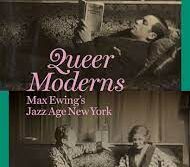
VIRGINIA’S APPLE: Collected Memoirs
by Judith Barrington
Oregon State University Press. 234 pages, $24.95
MEMOIRS take a slice of history and reveal what it was like not only growing up in a certain time and place, but also what changed inside a person as they came to terms with being who they are. For someone raised in the 1950s, when conformity to certain norms was strictly enforced, being a lesbian was dangerous both personally and professionally. A minor slip-up could cause someone to lose their job or their family.
Judith Barrington’s collected memoirs, Virginia’s Apple, offers a window into how the homophobia of those times injured everyone in its path. Rather than produce a linear account of her life, she ladles out small doses in a series of episodes: her affair with an exotic aunt who introduced her to sex; being in the closet at work; the perils of traditional marriage; early love affairs; emigrating to the U.S. with her new lover.
When I began reading her book, I wasn’t sure if I could relate to the anxieties and joys of a budding lesbian, but Barrington’s frank and engaging style immediately caught my interest. In scene after scene, her humor and delight invite you into the moment. Even her ill-fated marriage ceremony comes to life: “As I walked toward the door holding Colin’s arm, the organ was so loud I feared it might blast the old church into pieces. I imagined the fragments flying up into the sky and twirling around before falling in slow motion onto the roofs of houses.”
After meeting the woman who would become her life partner, she ruminates about what, after all the years of denial and hiding, still troubled her: “Sometimes it seemed as if falling in love had pushed me right over some crazy edge. Back in the days of Nicolette, and even of Lillian, I’d had no vision of a life with a woman, even while I flailed around desperately trying to create one. In those days, I could say that I wanted to stay with my lover forever, but I could no more picture it than I’d been about to picture married life with Colin.”
What’s so refreshing in her memoirs is her ability to hold the doubt, even the incomprehension, that lingered inside her, as it did for many of us in those years, since being committed to a same-sex partner was so beyond the pale that it was hard to accept. She’s able to recreate the dreadful moments of going to an inn and asking for a room—a simple act to which most people wouldn’t give a second thought. Yet for her, when asked by the proprietor if she wanted a “single” or “double beds,” admitting she wanted a single meant she was exposing her lesbian relationship and having to face the clerk’s disdain.
In her later years, she has wonderful stories about getting to know Adrianne Rich, a fellow poet who had a quirky, indomitable personality. An expatriate living in Oregon, she returns later in life to England to find the remains of childhood memories in old homesteads and apartments, some bittersweet, some just bitter. She also speaks about aging and how she and her partner, after creating an institute for women writers, have settled into a life together where both can explore and expand their connections to the world.
Although these memoirs were written over six decades, they read as a seamless recollection of an age and speak to the dread, the joy, and the angst of coming out at a time when doing so could be life-threatening. In our own troubling times, her reflections become all the more germane, reminding us of the courage it once took for people to discover the truth about themselves, and to let the world know about it. _______________________________________________________
Bruce Spang is a poet and writer living in Chandler, NC.





